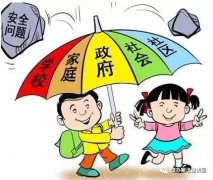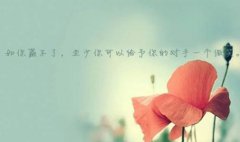仔细阅读
On Thursday afternoon Mrs. Carke, dressed for going out, took her handbag with her money and her key in it, pulled the door behind her to lock it and went to the over 60s Club. She always went there on Thursdays. It was a nice outing for an old woman who lived alone.
At six o'clock she cane home, let herself in and at once smelt cigarette smoke. Cigarette smoke in her house? How? How? Had someone got in? She checked the back door and the windows. All were locked or fastened, as usual. There was no sign of forced entry.
Over a cup of tea she wondered whether someone might have a key that fitted her front door-"a master key"perhaps. So she stayed at home the following Thursday. Nothing happened. Was anyone watching her movements? On the Thursday after that she went out at her usual time,dressed as usual, but she didn't go to the club. Instead she took a short cut home again, letting herself in through her garden and the back door. She settled down to wait.
It was just after four o'clock when the front door bell rang.Mrs. Clarke was making a cup of tea at the time. The bell rang again, and then she heard her letter-box being pushed open. With the kettle of boiling water in her hand, she moved quietly towards the front door. A long piece of wire appeared through the letter-box, and then a hand. The wire turned and caught around the knob on the door-lock. Mrs. Clarke raised the kettle and poured the water over the hand. There was a shout outside, and the skin seemed to drop off the fingers like a glove. The wire fell to the floor, the hand was pulled back, and Mrs. Clarke heard the sound of running feet.
1.Mrs. Clarke looded forward to Thursday because_______.
a.she worked at a club on the day
b.she said visitors on Thursdays
c.she visited a club on Thursday
d.a special visitor came on Thursday
2.If someone had made a forced entery,_______.
a.Mrs.Clarke would have found a broken door or window
b.he or she was still in the house
c.things would have been thown about
d.he or she would have needed a master key
3.On the third Thursday Mrs. Clarke went out_______.
a.because she didn't want to miss the club again
b.to see if the thief was hnging about outside
c.to the club but then changed her mind
d.in an attempt to trick the thief
4.The lock on the front door was one which_______.
a.needed a piece of wire to open it
b.could he opened from inside without a key
c.could't be opened without a key
http://ed a knob instead of a key
5.The wire feel to the floor_______.
a.because Mrs.Clarke refused to open the door
b.when the man's glove dropped off
c.because it was too hot to hold
d.because the man justwanted to get away
第二篇
Many people believe the glare from snow causes snowblindnenss. Yet, dark glasses or not , they find themselves suffering from headaches and watering eyes,and even snowblindness,when exposed to several hours of "snow light" .
The United States Army has now determined that glare from snow does not cause snowblindness in troops in a snow-covered country.Rather, a man's eyes frequently find nothing to foucs on in a broad expanse of barren snow-covered terrain. So his gaze continually shifts and jumps back and forth over the entire landscape in search of tsomething to look at. Finding nothing, hour after hour, the eyes never sotp searching and the eyeballs become sore and the eye muscles ache. Nature offsets this irritation by producing more and fluid which covers the eyeball. The fluid coversthe eyeball in increasing quantity until vision blurs, then is obsured,and the result is total, even though temporary,snowblindness.
Experiments led the Army to a simple method of overcoming this problem. Scouts ahead of a main body of troops are trained to shake snow from evergreen bushes, creating a dotted line as they cross completely snow-covered landscape,Even the scouts themselves throw lightweight , dark colored objects ahead on which they too can focus . The men following can then see something.Their gaze is arrested. Their eyes focus on a bush and having found something to see,stop scouring the snow-blanketed lanscape. By focusing their attention on one object at a time,the men can cross the snow without becoming hopelessly snowblind or lost. In this way the problem of crossing a solid white terrain is overcome.
1.To prevent headaches, watering eyes and blindness caused by the glare from snow, dark glasses are_____.
a.indispensible
http://eful
c.ineffective
d.available
2.When the eyes are sore tears are produced to ________.
a.clear the vision
b.remedy snowblindness
c.ease the irritation
d.loosen the muscles
3.Snowblindness may be avoided by_______.
a.concentrating to the solid white terrain
b.searching for something to look at in snow-covered terrain
c.providing the eyes with something to foucs on
d.covering the eyeballs with fluid
4.The scouts shake snow from evergreen bushes in order to _______.
a.bive the men behind something to see
b.beautify the landscape
c.warm themselves in the cold
d.prevent the men behind from losing their way
5.A suitable title for this passage would be _______.
a.snowblindness and how to overcome it
b.natrue's cure for snowblindness
c.soldiers in the snow
d.snow vision
选词填空:
Have you ever been afraid to talk back when you were treated ____47 ___? Have you ever bought something just because the salesman talked you into it? Are you afraid to ask someone for a date.
Many people are afraid to assert(表现)themselves. Dr. Alberti thinks it's because their self-respect is low. "Our whole ____48 ___ is designed to make people distrust themselves," says Alberti. "There's always '____49 ___' around-a parent, a teacher, a boss-who 'knows better'. These superiors often gain when they chip(削弱) away at your self-image."
But Alberti and other scientists are doing something to help people ____50 ___ themselves. They ____51 ___ "assertiveness training" courses-At for short. In the AT courses people learn that they have a right to be themselves. They learn to speak out and feel good about doing so. They learn to be more ____52 ___ without hurting other people.
In one way. learning to speak out is to ____53 ___ fear. A group taking a course will help the timid person to lose his fear. But AT uses an even stronger ____54 ___-the need to share. The timid person speaks out in the group because he wants to tell how he feels.
Whether or not you speak up for yourself depends on your self-image. If someone you face is more "important" than you, you may feel less of a person. You start to ____55 ___ your own good sense.
You go by the other person's ____56___ . But, why should you? AT says you can get to feel good about yourself. And once you do, you can learn to speak out.
[A] doubt [B] active [C] system [D] offer
[E] unfairly [F] unfortunately [G] motive [I] peace [J]
demand [K] ask [L] superior [M] overcome
[N] confidence [O] roar


